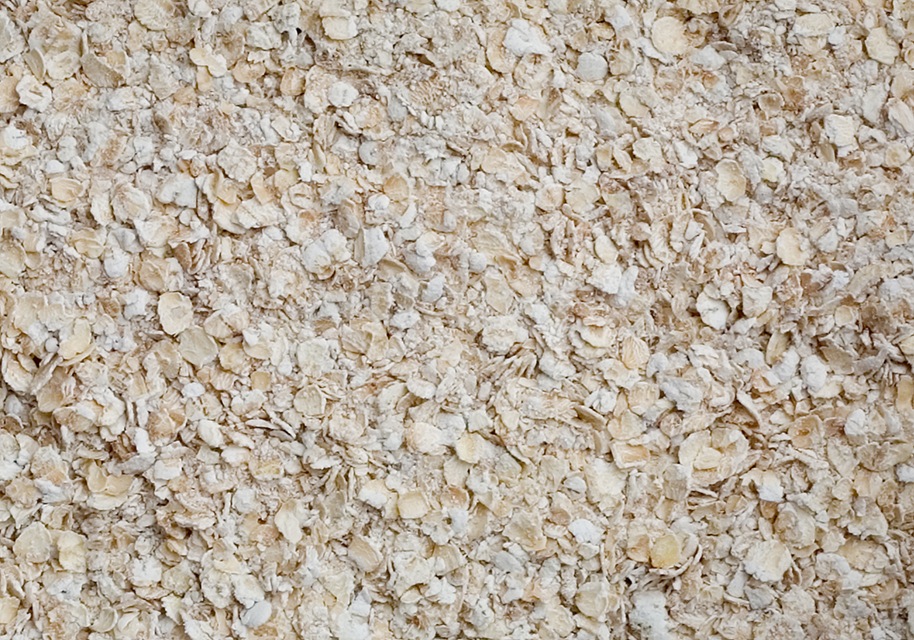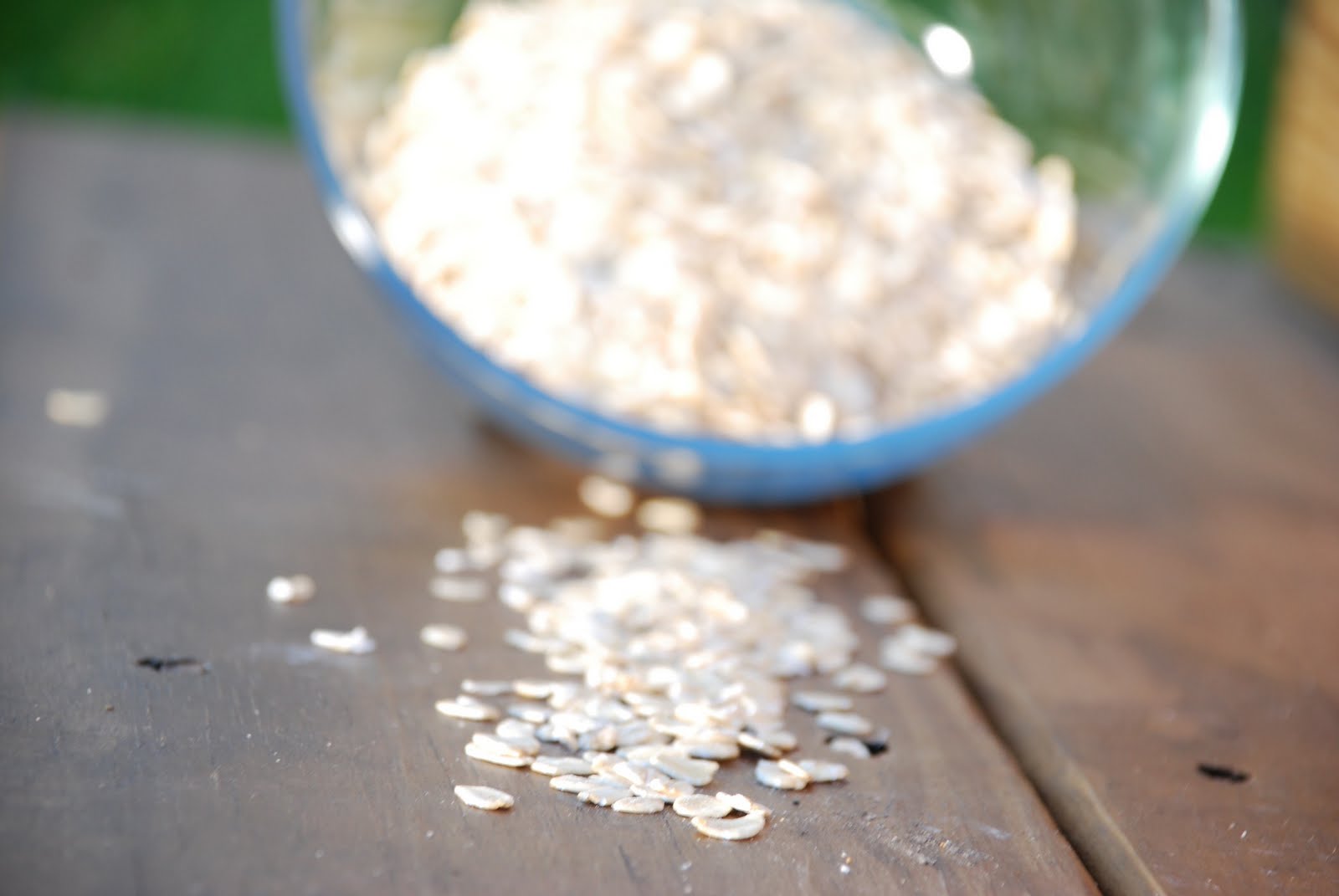I like to say that oatmeal is it’s a perfect 10. You can eat it at breakfast to propel you through sluggish mornings, a couple of hours before a workout to feel fully energized by the time you hit the weights, or at night to avoid a late-night binge.
Oatmeal can be far more than just your breakfast cereal, it can help you make it through your day no matter what you're up to.

Why oatmeal works the magic?
Oatmeal contains soluble fiber, meaning that it attracts fluid and stays in your stomach longer than insoluble fiber (like vegetables). Soluble fiber is thought to reduce blood cholesterol by binding with digestive acids made from cholesterol and sending them out of your body. When this happens, your liver has to pull cholesterol from your blood to make more digestive acids, and your bad cholesterol levels drop.
Over 40 studies show that eating oatmeal may help lower cholesterol and reduce the risk of heart disease. According to Quaker Inc., all it takes is 3/4 cup of oatmeal each day to help lower cholesterol.
In January 1997, the Food and Drug Administration announced that oatmeal could carry a label claiming it may reduce the risk of heart disease when combined with a low-fat diet.
But that’s not it! The soluble fiber in oatmeal absorbs a considerable amount of water which significantly slows down your digestive process. This result is that you'll feel full longer, i.e. oatmeal can help you control your weight.
According to recent studies, a diet that includes oatmeal may help reduce high blood pressure. The reduction is linked to the increase in soluble fiber provided by oatmeal. Oats contain more soluble fiber than whole wheat, rice or corn.
Oatmeal contains a wide array of vitamins, minerals and antioxidants and is a good source of protein, complex carbohydrates and iron.

A Penn State study also showed that oatmeal sustains your blood sugar levels longer than many other foods, which keeps your insulin levels stable and ensures you won’t be ravenous for the few hours that follow. That’s good, because spikes in the production of insulin slow your metabolism and send a signal to the body that it’s time to start storing fat. Since oatmeal breaks down slowly in the stomach, it causes less of a spike in insulin levels than foods like bagels. Include it in a smoothie or as your breakfast. (A U.S. Navy study showed that simply eating breakfast raised metabolism by 10 percent.) Actually, new research suggests that eating oatmeal may reduce the risk for type 2 diabetes. In fact, the American Diabetes Association already recommends that people with diabetes eat grains like oats. The soluble fiber in these foods help to control blood glucose levels.
Also, the fiber and other nutrients found in oatmeal may actually reduce the risk for certain cancers
Which oatmeal shall you use...
With the exception of certain flavored varieties, the oats found in your grocery store are 100% natural. If you look at the ingredients on a canister of rolled oats, you will usually see only one ingredient... rolled oats. Oatmeal is quick and convenient. Every type of oatmeal can be prepared in a microwave oven. Even when cooked on the stovetop, both old-fashioned and quick oats can usually be made in less than 10 minutes. And what about instant oatmeal… a hot breakfast in under a minute... incredible!

I recommend instant oatmeal for its convenience. But I want you to buy the unsweetened, unflavored variety and use milk and berries to enhance the taste. Preflavored oatmeal often comes loaded with sugar calories. Oatmeal can be absolutely delicious! Whether instant, cooked on the stove or baked in the oven, the combination of flavors you can fit into a serving of oatmeal is limited only by the imagination.
One final tip on oatmeal
Another cool fact about oatmeal: Preliminary studies indicate that oatmeal raises the levels of free testosterone in your body, enhancing your body’s ability to build muscle and burn fat and boosting your sex drive.
TheIronYou
Oatmeal can be far more than just your breakfast cereal, it can help you make it through your day no matter what you're up to.
Why oatmeal works the magic?
Oatmeal contains soluble fiber, meaning that it attracts fluid and stays in your stomach longer than insoluble fiber (like vegetables). Soluble fiber is thought to reduce blood cholesterol by binding with digestive acids made from cholesterol and sending them out of your body. When this happens, your liver has to pull cholesterol from your blood to make more digestive acids, and your bad cholesterol levels drop.
Over 40 studies show that eating oatmeal may help lower cholesterol and reduce the risk of heart disease. According to Quaker Inc., all it takes is 3/4 cup of oatmeal each day to help lower cholesterol.
In January 1997, the Food and Drug Administration announced that oatmeal could carry a label claiming it may reduce the risk of heart disease when combined with a low-fat diet.
But that’s not it! The soluble fiber in oatmeal absorbs a considerable amount of water which significantly slows down your digestive process. This result is that you'll feel full longer, i.e. oatmeal can help you control your weight.
According to recent studies, a diet that includes oatmeal may help reduce high blood pressure. The reduction is linked to the increase in soluble fiber provided by oatmeal. Oats contain more soluble fiber than whole wheat, rice or corn.
Oatmeal contains a wide array of vitamins, minerals and antioxidants and is a good source of protein, complex carbohydrates and iron.
A Penn State study also showed that oatmeal sustains your blood sugar levels longer than many other foods, which keeps your insulin levels stable and ensures you won’t be ravenous for the few hours that follow. That’s good, because spikes in the production of insulin slow your metabolism and send a signal to the body that it’s time to start storing fat. Since oatmeal breaks down slowly in the stomach, it causes less of a spike in insulin levels than foods like bagels. Include it in a smoothie or as your breakfast. (A U.S. Navy study showed that simply eating breakfast raised metabolism by 10 percent.) Actually, new research suggests that eating oatmeal may reduce the risk for type 2 diabetes. In fact, the American Diabetes Association already recommends that people with diabetes eat grains like oats. The soluble fiber in these foods help to control blood glucose levels.
Also, the fiber and other nutrients found in oatmeal may actually reduce the risk for certain cancers
Which oatmeal shall you use...
With the exception of certain flavored varieties, the oats found in your grocery store are 100% natural. If you look at the ingredients on a canister of rolled oats, you will usually see only one ingredient... rolled oats. Oatmeal is quick and convenient. Every type of oatmeal can be prepared in a microwave oven. Even when cooked on the stovetop, both old-fashioned and quick oats can usually be made in less than 10 minutes. And what about instant oatmeal… a hot breakfast in under a minute... incredible!
I recommend instant oatmeal for its convenience. But I want you to buy the unsweetened, unflavored variety and use milk and berries to enhance the taste. Preflavored oatmeal often comes loaded with sugar calories. Oatmeal can be absolutely delicious! Whether instant, cooked on the stove or baked in the oven, the combination of flavors you can fit into a serving of oatmeal is limited only by the imagination.
One final tip on oatmeal
Another cool fact about oatmeal: Preliminary studies indicate that oatmeal raises the levels of free testosterone in your body, enhancing your body’s ability to build muscle and burn fat and boosting your sex drive.
TheIronYou


.jpg)







.jpg)

I love oatmeal
ReplyDeleteme too
ReplyDeleteBest mean
ReplyDeleteSo far, i love it
ReplyDeleteCombine with Vitamin C to reduce more of the non-heme iron
ReplyDeletewhat does that even mean?
DeleteThe picture is actually a wheat plant, not Oats. Regardless I am an oat lover. Just bought a 50 lb sack of organic from our local mill. Yum. Eat it raw in yoghurt.
ReplyDeleteGood suggestion
ReplyDeleteI have elevated Ferritin levels just to be clear eating oatmeal is ok correct?
ReplyDeleteOats contain high levels of phytate, which interferes with absorption of nonheme iron. We usually cook oatmeal with milk, which contains calcium which also interferes with absorption of iron. Oatmeal itself contains relatively high levels of nonheme iron, but unless you eat it with one of the things that helps increasing absorption of nonheme iron (vitamin C, beta carotene, animal protein, heme iron), you are probably OK. You should limit your heme iron intake, but nonheme iron from vegetables and legumes are usually Ok because nonheme iron is difficult to absorb, which is why vegetarians are more at risk for iron deficiency than non vegetarians. The answer to your question depends on why you have high ferritin. Drink less alcohol because alcohol damages the liver, which stores and eliminates iron, and alcohol increases absorption and storage of iron. High serum ferritin levels do not always indicate high iron levels. You need to find out why you have high ferritin. However, with respect to oatmeal, yes a bowl a day won't harm you, just don't eat it with fruit or vitamin C supplement. Hope that helps.
DeleteExcept apples, right? I have high ferritin, too, and I heard apples bind with the iron and remove it. I could be wrong. This is new to me. Just found out my levels were high.
DeleteI'm the type of person who gains weight very fast.
ReplyDeleteI played football when I was younger and after an injury I started to gain a lot of weight, but this method https://bit.ly/2Zg3x2t helped me lose about 45 pounds.
I hope it will help others.
Oh for Pete’s sake. My Grandmother lived to 99. Oatmeal every day as well as whole wheat ‘heavy’ bread. Never took supplements. Don’t over analyse! Just eat your oatmeal.
ReplyDelete